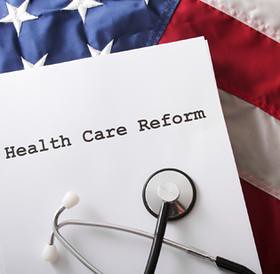You Ask, We Answer: How Will the Supreme Court Decision Change Medicaid?
By
Mattea Kramer
Posted:
|
Health Care
Since the Supreme Court ruled on the Affordable Care Act – also known as Obamacare – there have been lots of questions about Medicaid: How it's funded, what the Supreme Court decision meant, and what's going to change now.
While the Supreme Court upheld most of the Affordable Care Act, it struck down a part of the law pertaining to states' participation in expanding Medicaid eligibility. The Court ruled that Congress cannot hold hostage existing Medicaid funding in order to compel states to comply with the expansion. If you find this a little confusing, you're not alone.

First of all, Medicaid is the federal health insurance program for low-income Americans, and it's jointly funded by the states and the federal government. Currently the feds pick up at least half the tab for the program in every state, and in some states the feds pick up over 70 percent of the program's cost. (The variation is based in part on state per-capita income.) A cornerstone of the Affordable Care Act is its expansion of Medicaid eligibility to Americans who fall below 133 percent of the poverty line – currently eligibility varies widely by state – and that expansion is a key means by which the law brings millions of currently uninsured Americans into the ranks of the insured. The federal government will pick up 100 percent of the cost of the expansion for the first two years – from 2014 to 2016 – after which time the feds will gradually decrease their share down to 90 percent by the year 2020. Still, that means the federal government will pay the vast majority of the cost for states to extend health insurance to their residents. And those who are uninsured currently rely on emergency rooms to access medical care – which is costly for hospitals as well as taxpayers.
As originally written, the Affordable Care Act would pull existing federal funding for Medicaid from states that chose not to comply with the Medicaid expansion. But the justices ruled that the federal government cannot coerce states in this manner; thus, with that decision, expanding Medicaid has essentially become optional for state governors. And more than a dozen have said they will opt not to expand Medicaid.
Some of these governors have said they cannot bear the financial burden of doing so. It's worth noting that states will end up paying more for Medicaid even if they don't comply with the expansion, because the individual mandate – the part of the law that says everyone must have insurance – will likely mean that residents who are currently eligible but not enrolled in Medicaid will now enroll. That will add new pressure to state budgets, and in the wake of the Great Recession many states are in dire financial straits. But since the vast majority of the expanion will be paid for by the feds, it's safe to say that politics is also a central factor in states opting not to expand Medicaid for their residents.
What's unclear is how this will affect impoverished residents of those states. They are not eligible for subsidies toward private insurance, since those are only available to Americans who are above 133 percent of the poverty line, because the law assumed that all those below that income threshold would enroll in Medicaid.
According to the New York Times, governors of Wisconsin and Louisiana have said they'll wait to see what happens in November before deciding whether or not to expand Medicaid. They are speculating that a Romney presidency would lead to a repeal of the health care law. Yet even if Mitt Romney were elected, he would need cooperation from both the House and Senate to repeal the Affordable Care Act – and that's a tall order.